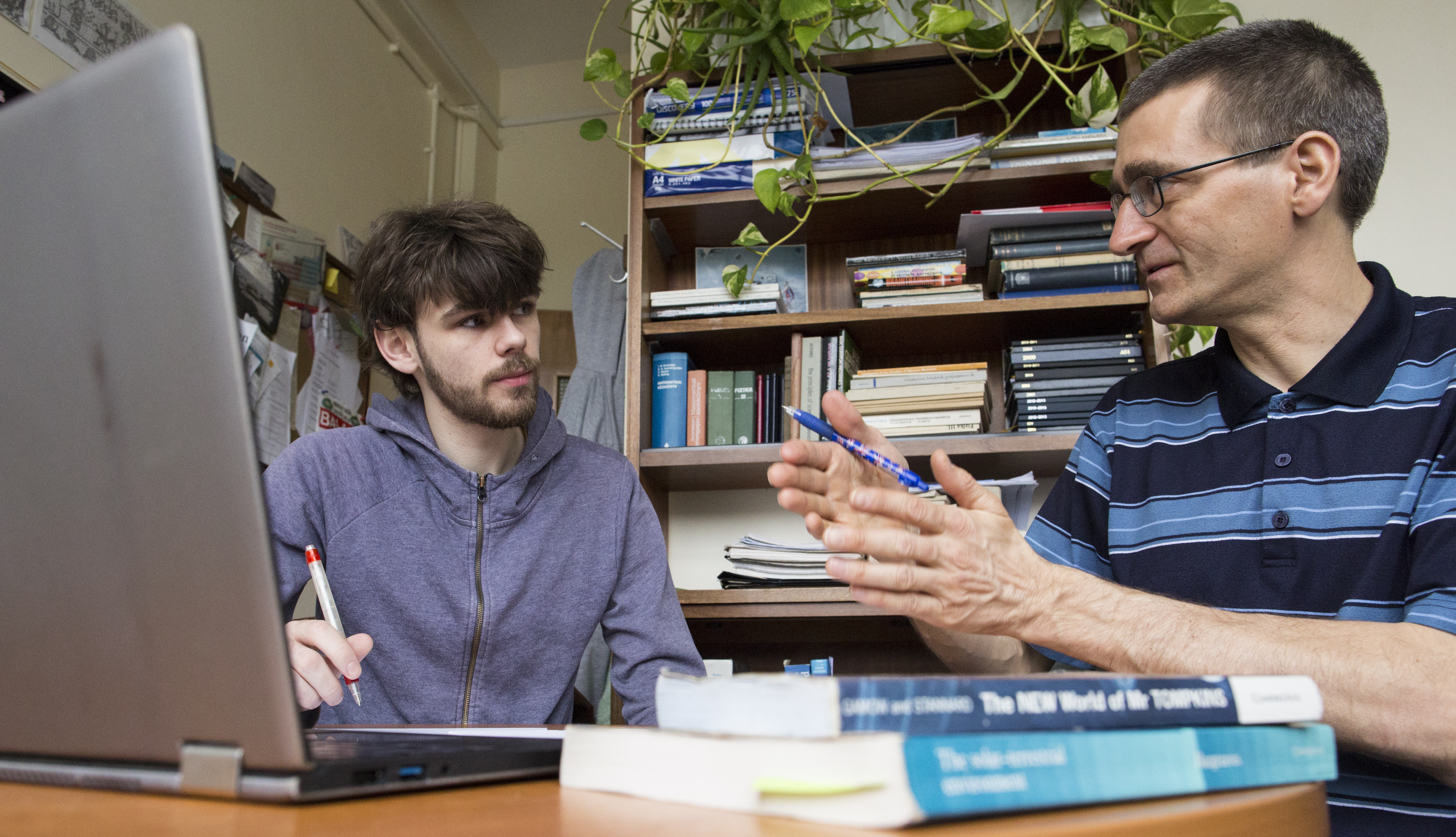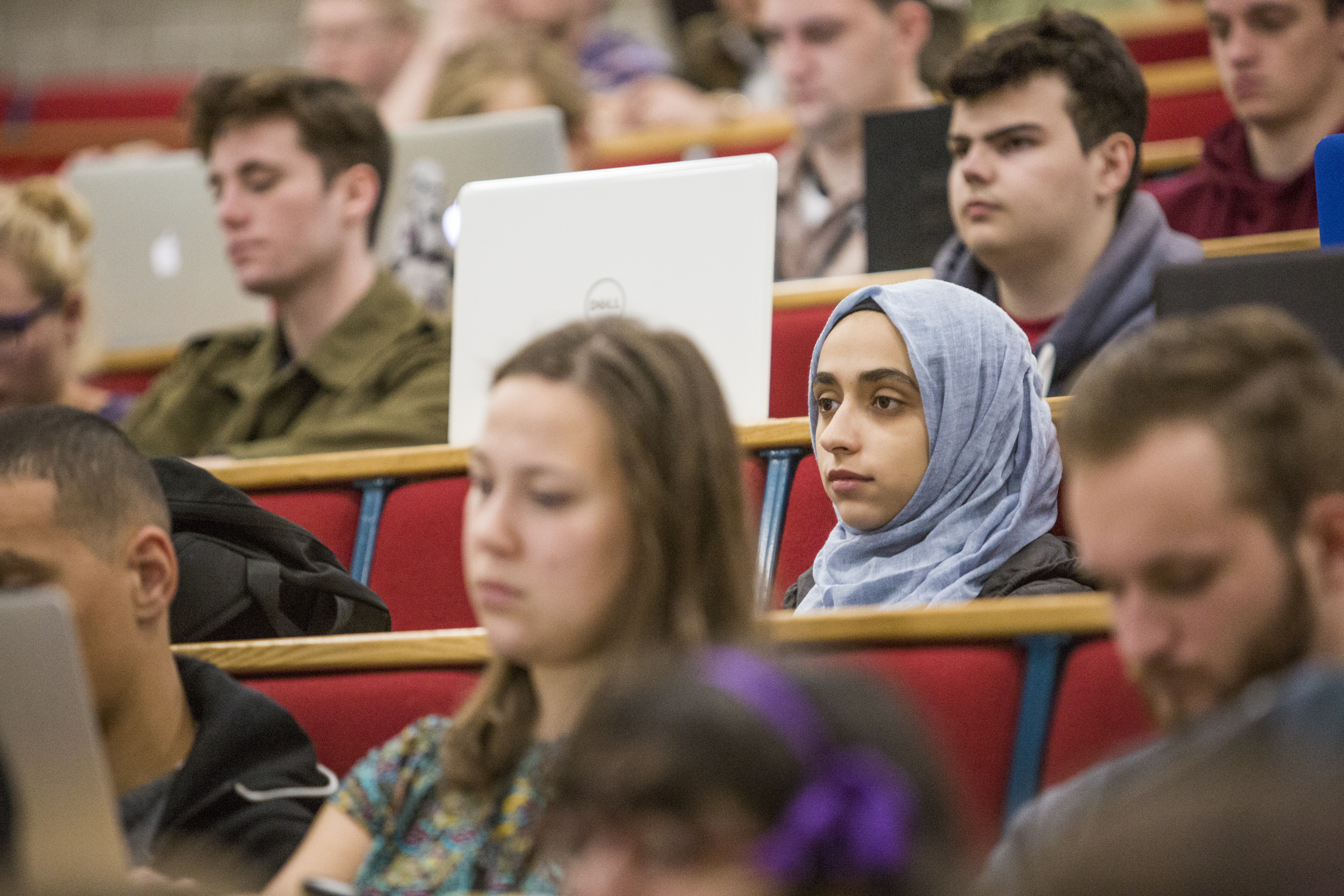How to be an academic weapon and not a victim, in 3 steps
Renata Freeman Alegre, who is in the final year of a joint honours degree International Relations and Economics, offers some useful study advice for new students about developing good study skills from day one:
First, take a deep breath. You have worked hard to be where you are today, so please take time to recognise your achievements before trying to adapt to a new rhythm of studies.
Coming to university is a big step and will involve big changes. Life as you knew will not be the same as before. You might eat different food now, wake up a different hour, wear clothes you didn’t before – and you can add to these changes, a new way of learning.
University is here for you to explore that topic you love and contribute to that field with your research, ideas and work. Sometimes doing these things can be quite challenging, so I have summarised some advice that has helped me during my studies to take my grades and learning to a different level.
Step 1: Don’t fall into the “first year doesn’t matter” trap.
You will constantly hear things like: “The first year doesn’t count, so just have a good time and don’t take it too seriously.”
In fact, the first year is a crucial year in your studies and your future degree.
The first year is when mistakes are taken into consideration, and it is through making mistakes that we learn. When you start your studies, you are not expected to know everything, therefore it is okay if some mistakes happen. For example, you use the wrong style for your references or you’re not able to upload a paper because you’re still learning how to use Blackboard.
As a student, you have access to AberSkills, where you can find lots of support to enhance your studies – such as how to develop the skills for independent learning and academic writing, revision techniques, and using technology at Aberystwyth University. Find out more at AberSkills.

Once you begin your studies, you will start creating a routine and your own approach to workload and deadlines. Starting off with the wrong approach will take twice the effort to correct than starting in the right direction.
Also, if you are planning on taking an internship as part of your course, bear in mind that some employers ask to see your grades from your first year as well, so help your future self.
Don’t forget to look after yourself at this time when you are getting used to so many changes. Your wellbeing is so important and the Wellbeing Service at Aberystwyth University is here to help you to get the most out of your time.
You are a fresher only once – enjoy your first year and use it wisely!
Step 2: Use drop-in sessions to fine tune your work
You may think your piece of work looks great, but what if you could get a professional point of view? Like an expert reviewing it and telling you what works and what doesn’t?
I would like to introduce to you the Drop-in sessions. Each lecturer will set time aside to help you and guide your approach – you can find a lecturer’s office hours displayed outside their office or on their staff profile on the website.

Long deadlines are given so that you can build up some work, take it to your drop-in session, re-evaluate it, rewrite or keep writing, take it back to the drop-in session and feel confident when uploading it.
There are other Academic and University Services that offer drop-in and appointments sessions that can enhance your studies and solve any questions you may have. Find more about them on Aber Skills.
Step 3: Don’t think that just attending lectures is enough
Back at school, everything you needed to learn was taught in class, and you simply revised what you’d been taught before your exams. I thought this would apply to university as well.
Silly old me – I went to my lectures, sat down, listened, took notes and then wandered off home to watch TikTok.
However, after some time I realised that I didn’t understand some of the concepts and knowledge that other students did, and that was because I was relying upon only lectures to learn. I didn’t set time during my day to review content, read the essential books of each module, to practice some exercises on my own, and more. Once I did all of these things and understood that lectures are there to help us frame our knowledge better and to make everything clearer, but not to teach it all, I felt more engaged with my modules.

If you want to learn from my mistake, my advice would be:
- Visit your lecture PowerPoint slides on Blackboard before the lecture, read and analyse them. Write down the key takeaways and any questions you may have. This way you can learn how your lecturer approaches the key takeaways and ask them your questions once in the lecture theatre.
- Set some time aside to read your essential books during the day.
- Practice on your own the skills you will need in the future. For example, I do Economics, therefore I need to practice calculations and drafting graphs.
- When taking notes from your lecture you can try to write things down as questions. For example: “GDP is considered a measure of how well an economy is performing”, you can write instead, “What is GDP? GDP measures how well an economy is performing”. By doing this, you will create a study guide without noticing, so when exams are due, your notes become your guide, and not just notes.
- Leave space underneath your notes for your own thoughts. A lot of the time you are trying to absorb knowledge and are leaving your thoughts behind, but it is good to have somewhere to record your unique way of thinking.
- Take your time and use it wisely. This is one of the few periods of life where we can actually spend hours reading, learning and enjoying a subject we love. University is a blessing and a luxury, never take it for granted (even when you think about skipping your 9am) Enjoy it!
Please find some links here to more information to make the most out of your studies and your time as a student:
Unless otherwise stated, the views contained within these blogs are those of the author and do not necessarily represent the views of Aberystwyth University.
